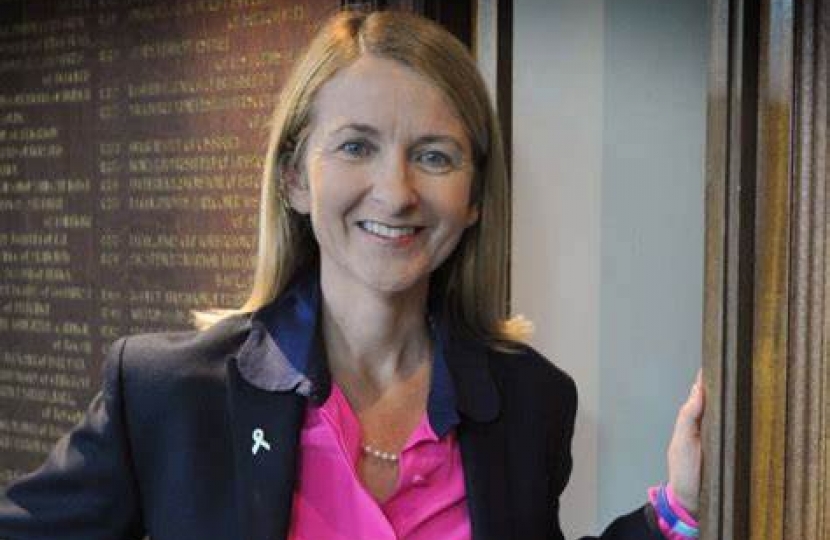
The warning comes just days before Valentine's Day.
Valentine’s Day is a day for expressing and receiving displays of love and affection.
With so many more people isolated and lonely during lockdown, the use of online dating apps and sites has grown exponentially and so too has the number of people who have fallen victim to romance fraud.
With Valentine’s Day just around the corner, Sussex Police & Crime Commissioner Katy Bourne has revealed that 256 reports of romance fraud were made in 2020, a 63% increase from 2019.
Victims lost more than £3million in total to fraudsters who preyed on those looking for companionship, with the average amount lost per person being £12,800.
Many of these scams saw people believe they had met their perfect partner online, but in fact a fraudster was using a fake profile to build a relationship with them.
Former lorry driver Mike Curzon from Selsey, West Sussex was conned out of £21,000 by trickster “Patricia” who posed as an American barmaid.
The divorced 60-year-old sold his car and van, wired over his £5,000 life savings and even borrowed £10,000 more from his brother, after she wooed him, said she would marry him but that she needed help to settle her bills first.
Mike was left suicidal after discovering the ruse in June of this year. He said: “I was on my own during lockdown and I was really scared and lonely. She definitely took advantage of that.
“I loved this woman. I thought I was going to marry her, and I just wanted to protect her.”
PCC Katy Bourne funds two Fraud Caseworkers through Victim Support who work with people like Mike who have not only been scammed out of their life savings but are also coping with the confused grief of losing someone they thought they knew and loved.
Mike adds: “The work they do is brilliant, without their support I wouldn't be here today and I mean that. Just to have a listening ear and being able to talk to someone about how you feel means a lot of support in itself, so I want to thank them for listening.”
This year, PCC Katy Bourne awarded a further £57,745 to the caseworkers, who in that time, worked with 880 vulnerable victims. They offer emotional support, practical guidance and advice on how to spot the signs of future fraudulent activity.
Lisa Mills, Senior Fraud Manager said: “Romance fraud is a despicable crime which has wide ranging emotional, psychological and financial impacts on victims. The fraudsters are very skilled in their use of language and use a variety of other manipulative techniques in order to intensify the romantic feelings of their victims towards them. This is with the clear aim of financially exploiting them, with no thought or care for the devastating consequences of such actions, on their victim’s emotional and financial wellbeing.”
PCC Katy Bourne will be sharing Action Fraud advice across social media on how to keep yourself safe online this Valentine’s Day in the hopes that other’s do not fall victim to ‘fake love’ like Mike did.
She says: “Organised criminals are acutely aware of how lonely and isolated people are at this time and a lockdown Valentine’s Day provides the perfect opportunity for fraudsters to prey on those who are seeking love and affection.
“This crime is not only deceiving and can con our residents out of hard-earned savings but it is also incredibly cruel.
“That is why the services and specialist skills of our Fraud Caseworkers are so incredibly important. I’m really pleased with the work they are doing to successfully protect and support our most vulnerable victims of fraud.
“Please heed the advice being issued by Action Fraud this Valentine’s Day. Be vigilant to the signs they tell you to look out for and protect your savings and, more importantly, your heart.”
Action Fraud has some top tips on how to protect yourself from online romance fraudsters:
- Don’t put yourself and your identity in jeopardy by trusting people too quickly – be cautious when getting to know people
- Never send any money to people you've not met
- Keep all communication via the internet dating site you’re using – avoid using personal email addresses
- Report it immediately if you believe you’ve been a victim
When online dating, beware of particular behaviours and language a dating scammer might display/use:
- The relationship with someone you’ve met online is solely via emails, text messages and phone calls and doesn’t seem to develop into meeting up
- This person’s profile picture and the ones they send you make them look a supermodel
- They ask you lots of questions about yourself but don’t tell you much about themselves
- They quickly start calling you by a pet name or use endearing terms such as ‘darling’
- They want to communicate with you through instant messaging and, texts, rather than through the dating website or chat room where you met
- They don’t answer basic questions about where they live and work
- They start asking you to send them money
Do not hesitate to report if you have fallen victim to this type of crime. Sussex Police take all fraud incredibly seriously, they are vigilant to fraudsters and will proactively seek to bring offenders to justice. You can find out more on the different types of fraud and how to report fraud here: Advice about fraud | Sussex Police



